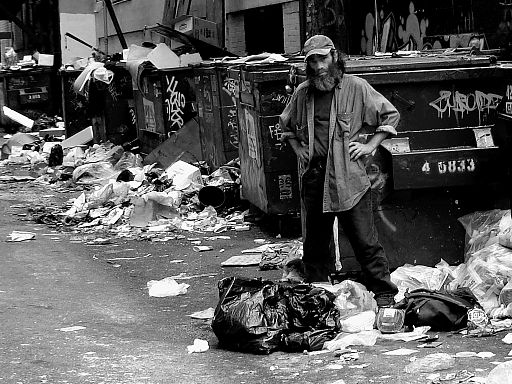Behind Vancouver’s breathtaking postcard views live almost 2,000 homeless people.
Although rarely mentioned when describing Vancouver’s stunning green spaces, sandy beaches and snow-dusted mountains that peek between downtown’s glass towers, they are no less part of the city landscape.
Mayor Gregor Robertson’s promise to end “street homelessness” by 2015 was crushed by data released last year showing Vancouver now has the largest homeless population in the city’s history. It is unfortunate to hear some say, sometimes, that homeless people are homeless because they chose to be.
People end up homeless for a wide range of reasons. Many have a mental illness or an addiction. Others have suffered from a family breakdown, domestic violence, exploitation or income insecurity. With very few exceptions, homelessness is not a choice. And it is certainly not a choice in Vancouver.
B.C. has the worst record of housing affordability in Canada — with almost one in three households spending more than 30 per cent of their gross income on housing costs. Vancouver in particular has the highest number of people below the Low Income Cut Off in the country — almost 17 per cent of the total population, which drastically increases the risk of homelessness. Welfare is inadequate and inaccessible, with multiple administrative hoops to jump through.
To grasp challenge of homelessness, one must learn about these most vulnerable citizens.
A study released in 2012 by Dr. Michael Krausz, a professor of psychiatry at UBC and the UBC Providence Leadership Chair, found that half the people who are homeless first found themselves without a home before they turned 25. Eighty-five per cent suffered some kind of emotional, physical or sexual abuse in their childhood, many of them while in foster care. The study also found that 93 per cent of all homeless people have a current mental disorder and 83 per cent exhibit a substance abuse disorder.
When there is an apparent relationship between homelessness and complex health issues such as mental illness and addiction, it is clear that the challenge of homelessness is a challenge for the current system of care.
The social marginalization of homeless people is one reason they have a difficult time advocating for support and accessing appropriate health care. Homeless people, especially those on the street, have difficulty connecting to the health-care system.
Instead of supporting a system that deals with the problem once it arises, Canada should rather focus on preventing homelessness through better, earlier, low-barrier access to quality mental health and addiction care. Finding ways to provide the proper medical support for the most vulnerable will be far more productive that discussing this year’s statistics on street homelessness.
But homelessness is a problem all across Canada. A few months away from the 2015 federal election, the commitment to improve public health care should be made an important campaign issue.
From a local governance perspective, Mayor Robertson has been attempting to end homelessness by investing in affordable housing, with help from the provincial government. Since the March 2014 homeless count, various B.C. Housing buildings, shelters and temporary housing have opened across the city.
The bigger health-care challenge, however, is not being addressed at a national level.
Getting a handle on the homelessness problem in Canadian cities requires a federal government commitment to a clear public health-care solution. An effective approach should tackle the combined influence of not having a safe place to go, no resources, untreated mental disorders, extensive trauma histories, and drug use risks.
In this case, a national health-care strategy would involve not only programs that focus on housing issues and reduce harm among injection drug users, but also include strategies to address mental health, addiction and trauma.
Maybe this election will be enough incentive for politicians to devote their efforts to a federal government presence engaged in an efficient and inclusive public health care response.
Soledad Vega is a freelance journalist and communications professional living in Vancouver, British Columbia. Her work centres on social issues, Latin American affairs, minority rights and gender. Follow her on Twitter @solevega.
Photo: wikimedia commons



